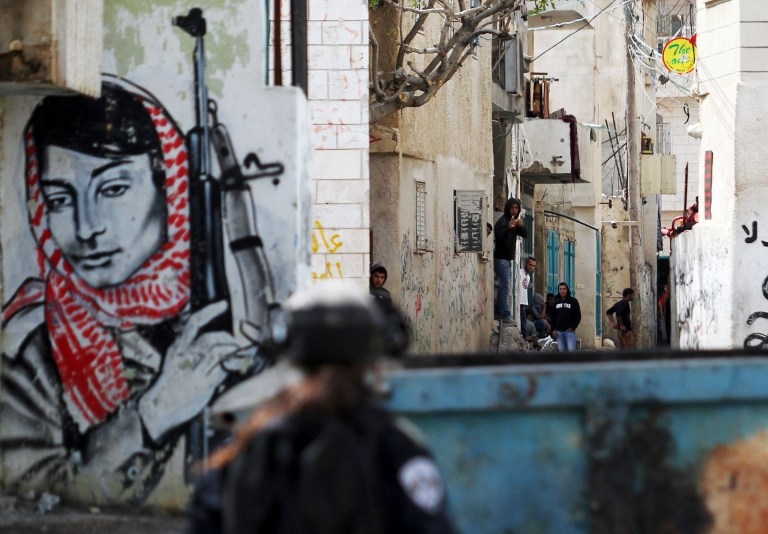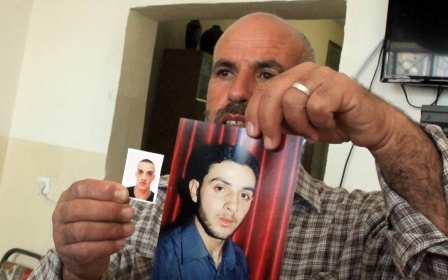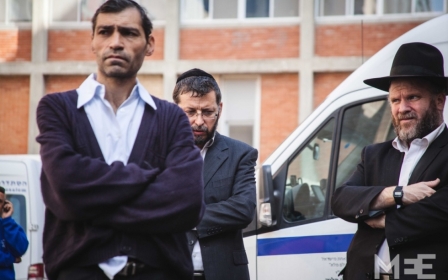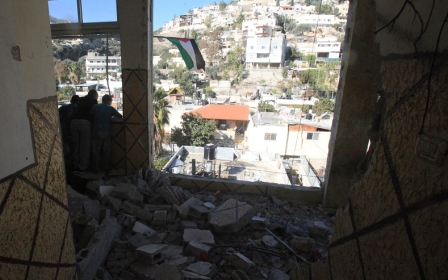PROFILE: The Popular Front for the Liberation of Palestine

In the wake of the 1967 Six Day War and the occupation of the West Bank by Israel, Palestinian Christian George Habash, established the PFLP, a resistance movement that combined Arab nationalism with Marxist-Leninist ideology.
During the 1960s and 1970s, the group gained notoriety for a series of armed attacks and plane highjacks, most notably with the capture of an Air France plane in 1967. Among the most prominent members of the group is Leila Khaled, who became an iconic symbol for Palestinian resistance and female power after she highjacked a plane headed from Rome to Athens in 1969.
In the 1970s, after Fatah – the leading secular Palestinian political party founded in 1959 by Yasser Arafat and others, the PFLP has consistently been the second-largest of the groups forming the Palestinian Liberation Organisation (PLO), the umbrella organisation of the Palestinian national movement. But while Fatah developed links with Arab leaders and sought a less radical approach, the PFLP took a different route.
Like its founder Habash who had become disenchanted with Nasser’s Arab unity, the PFLP became disillusioned with what it saw as apathy among Middle Eastern leaders. The group therefore began fostering links with like-minded militant groups and global superpowers, developing ties with China, the Soviet Union and later on with Islamic fundamentalist groups linked to Iran.
By the 1980s the rise of Islamist movements through a popular strategy of suicide bombings, particularly by Hamas and the Islamic Jihad, the PFLP began to lose ground as one of the leading resistance movements in Gaza and the West Bank. Furthermore, the fall of the Soviet Union left many leftist activists disoriented.
Internal rift
When the PLO signed the 1993 Oslo peace accords with Israel which marked the start of the Palestinian-Israeli peace process, the PFLP attempted to reinforce its position among Palestinian resistance groups by consigning to a group of Palestinian organisations that opposed the agreement.
As a means of underlining its opposition to the peace process, the PFLP boycotted Palestinian elections in 1996, but three years later the PFLP accepted the formation of the Palestine Authority - the interim self-governing body established as a result of the Oslo Accords to run areas of the West Bank and Gaza - and sought to join the administration of Yasser Arafat, chairman of PLO and leader of the Fatah political party.
During the 1990s, as the Palestinian Authority was being constructed in the West Bank, PFLP leaders searched for a balance between the radical spirit of the group and a new political status quo, which demanded a more pragmatic approach on their part.
According to Ramzy Baroud, an internationally syndicated journalist and expert on the Palestinian-Israeli conflict, a tacit rift occurred in the PFLP during that time.
As result while many PFLP-affiliated groups and NGOs learned to co-exist with the Fatah-dominated PA, others continued to hope for a return to the group’s heyday of radical political action and armed struggle.
At least rhetorically, armed-resistance remains a central component of the PFLP political posturing and literature.
Decline
After the death of Habash in 2001, he was replaced by Abu Ali Mustafa, who was killed the following year when an Israeli military helicopter fired rockets at the PFLP's office in Ramallah.
The group’s militant wing, the Abu Ali Mustapha Brigades, was named after the group’s assassinated leader.
“Israel cracked down on [the PFLP] assassinating its top leaders and killing and capturing many of its fighters,” Baroud said. “The group’s Secretary General, Abu Ali Mustafa was assassinated by Israel in Ramallah in August 2001, and his successor Ahmad Sa’adat languished in the PA, then Israeli prisons since 2002.”
The group struck back by shooting dead Israeli tourism Minister Rehavam Zeevi, leader of a right-wing party, in Jerusalem, and Saadat, was accused by Israel of ordering the killing. In 2002 the Palestinian Authority imprisoned him in Jericho after he and four others were convicted by a makeshift court with police officers acting as judges and lawyers.
The PFLP is currently boycotting participation in the executive committee of the PLO and views the Fatah-dominated government in the West Bank and Hamas administration in Gaza as illegitimate due to an absence of elections since 2006, which have not taken place due to a conflict, also known as the civil war, that erupted between Fatah and Hamas in 2007, resulting in a split of the Palestinian Authority.
It remained relatively active in resisting Israeli occupation, carrying out five suicide bombings between 2002 and 2004, during the second Palestinian intifada.
In 2011, two men affiliated to the PFLP were convicted of killing five Israelis, near the West Bank town of Nablus. Israeli prosecutors concluded they had carried out the attack on their own initiative however.
The PFLP leadership’s responsibility towards the Jerusalem synagogue attack on 18 November this year that saw the death of four rabbis remains unclear.
The PFLP is powerful politically in the Ramallah area, the eastern districts and suburbs of Jerusalem and Bethlehem.
New MEE newsletter: Jerusalem Dispatch
Sign up to get the latest insights and analysis on Israel-Palestine, alongside Turkey Unpacked and other MEE newsletters
Middle East Eye delivers independent and unrivalled coverage and analysis of the Middle East, North Africa and beyond. To learn more about republishing this content and the associated fees, please fill out this form. More about MEE can be found here.




